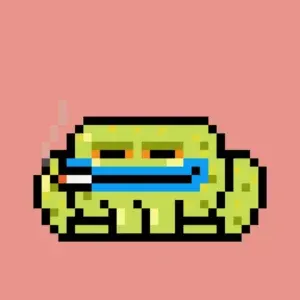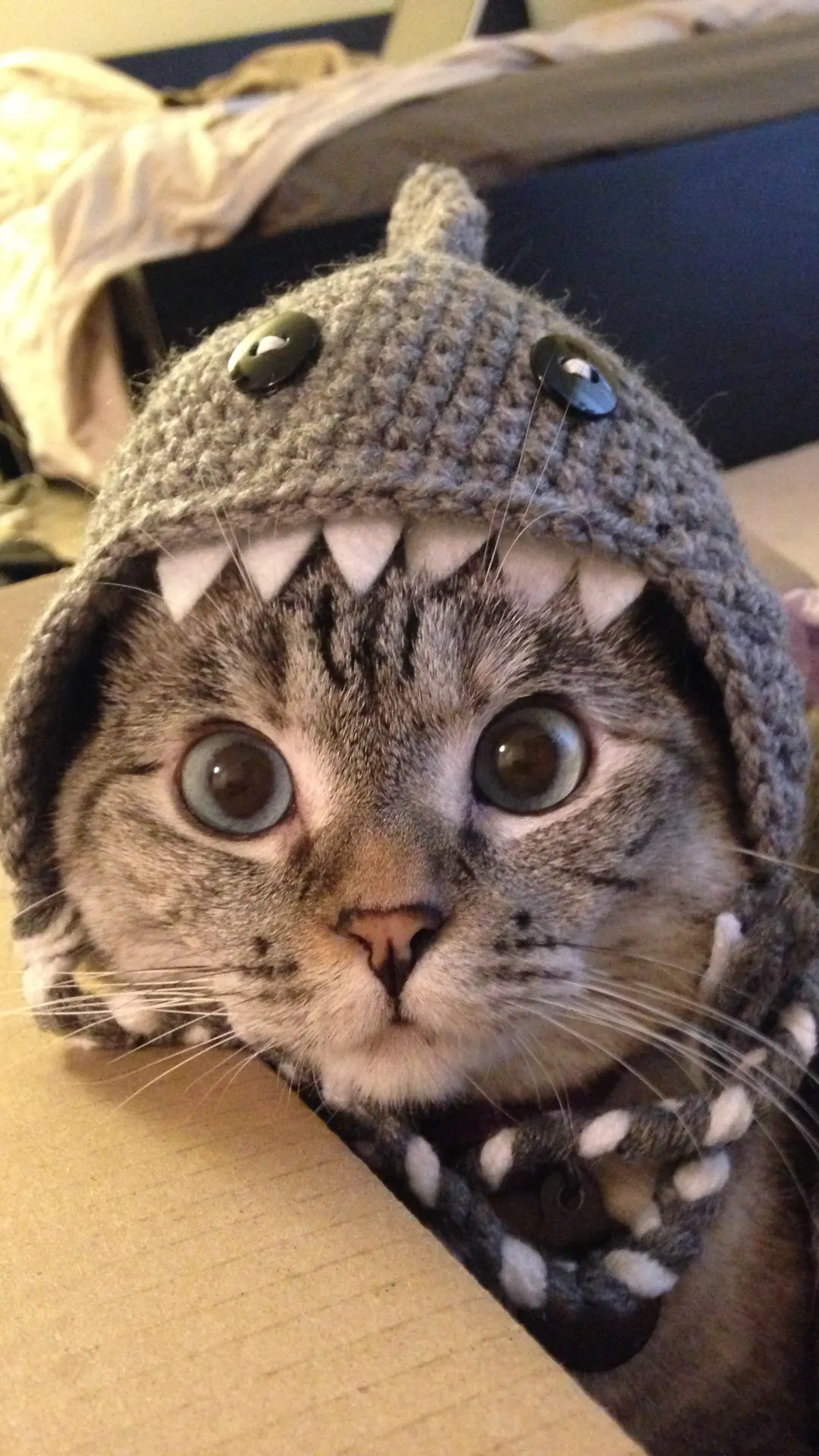Here’s an extremely specific problem: Say you take a photo of your pet and put it online. Then, let’s say that photo becomes a viral meme. Eventually, that meme inspires a crypto token that rapidly generates hundreds of millions (if not billions) of dollars in value.
Soon your pet is the hottest thing in crypto. Soon, she’s making anonymous traders you’ve never met into millionaires—but not you. Soon, depictions of your pet—both cute and less savory—are flowing in insular Discord and Telegram chats the world over.
Let’s say you want that all to stop. What then?
Ever since there have been meme coins, there have been pet owners dragged along for the ride—willingly or unwillingly—into the depths of crypto culture’s greatest excesses. Sometimes, relationships between these pet owners and the crypto communities they’ve inadvertently given rise to have flourished; sometimes, they’ve sparked uncomfortable tensions.
Now, an escalating feud between a cat owner and a crypto community inspired by the feline is testing the limits of the fragile relationship between pets and the meme coins that profit off of them—potentially highlighting legal avenues for pet owners to fight back, even within the legal murk of crypto.
Enter: Shark Cat.
the shark hat stays on$SC pic.twitter.com/nrO3qZuJMf
— Shark Cat 🦈🐱 (@SharkCatSolana) April 13, 2024
Late last month, the Solana token Shark Cat (SC) began making waves on social media, amid a flurry of pet-themed meme coins dominating DeFi trading. The coin was inspired by the ubiquitous image of a kitten named Nala in a tiny shark costume—and used said photo as the crux of its marketing strategy.
In short order, Shark Cat exploded, leveraging Nala’s recognizability to soar to a mind-boggling $390 million market capitalization.
Everyone involved was a 1,000x winner. Except, of course, Nala—and her owner, who goes by Pookie.
Pookie was at first blissfully unaware that her cat had been dragged into the frenzy of crypto’s ongoing meme coin fever. Then, an Instagram user reached out to her earlier this month, offering to pay her $15,000 for the right to use photos of Nala for an unrelated meme coin.
Intrigued, Pookie began researching crypto—unfamiliar territory—to figure out what was going on. She soon discovered there wasn’t just one meme coin using Nala’s likeness: There were a lot. At the top of the heap was Shark Cat, which appeared to be worth the GDP of a small country.
‘sir it’s a cat but it’s got a shark hat’$SC pic.twitter.com/oX6qFkbujq
— Shark Cat 🦈🐱 (@SharkCatSolana) April 12, 2024
Pookie reached out to Shark Cat’s leadership. That’s where things began to go south.
The token turned out to be run by a group of five men who claimed they didn’t start the coin, but were merely banding together to keep Shark Cat afloat after its anonymous creators abandoned ship—a common refrain in the increasingly legally treacherous world of DeFi.
Pookie says that these men told her that they would be willing to support a charity she’d worked with in the past; alternatively, they could help her auction an NFT of the Nala photo, as other pet owners in similar situations had previously done.
But Nala wasn’t just any cat. And Pookie wasn’t just any cat owner.
After Nala went viral in the early 2010s, Pookie realized she needed to take control of her kitten’s burgeoning fame. She carefully built out Nala’s brand online, growing the cat’s Instagram following to the largest of any cat on Earth with 4.5 million followers. She filed several trademarks related to the cat and created a website, where she still sells clothing, toys, and appliances adorned with Nala’s iconic mug; she even started a successful cat food business.
So Pookie felt strongly that she was being shortchanged. She told the Shark Cat team that she wanted more—she needed some “some skin in the game.” They offered her $3,000 worth of Shark Cat or Solana tokens. At that point, she asked for a sit-down.
On a Zoom call earlier this month—one in which, crucially, the Shark Cat team opted to reveal their faces and legal names (more on that soon)—Pookie asked for a 10% stake in Shark Cat. That was worth, at the time, roughly $20 million.
She also asked for a formal handover of control over the project and its direction. While researching Shark Cat, Pookie had discovered stickers in the coin’s Telegram chat depicting Nala with a prominent erection, wielding guns, and gambling. This concerned her.
fellow bag soldiers spraying memes on the tl$sc pic.twitter.com/rpINP0CdF3
— Shark Cat 🦈🐱 (@SharkCatSolana) April 9, 2024
“It’s vulgar,” Pookie told Decrypt. “If she has a boner in Telegram for this coin, and someone who supports our pet food sees that, they're going to start to question who we really are.”
According to both Pookie and the Shark Cat team, the Zoom call quickly fell apart. The Shark Cat team told Decrypt this was in part because someone they described as a “prominent hedge fund figure” joined the call to advocate on Pookie’s behalf, and demanded a payout in SOL.
Pookie says the person was a friend of hers who understood crypto better than she did, and was offering guidance; she denies that either she or the friend ever asked for SOL. The call soon became hostile. Pookie says that’s when she realized she didn’t want Nala’s likeness associated with the Shark Cat token whatsoever.
“It was clear the moment they raised their voice at our team, when we were trying to make things work, that we would not be able to ever work with them," Pookie said.
Things escalated from there. Days after the Zoom standoff, the Shark Cat team put together a counteroffer to Pookie, of 2.5 million Shark Cat tokens—which they say were worth over $600,000 at the time—and no concession of control over the token. In emails reviewed by Decrypt, they told Pookie that she had 90 minutes to accept those terms, or the deal was off.
Simultaneously, Pookie was in conversations with the team of yet another meme coin related to her cats. This token—White Coffee Cat (WCC)—was based on her other cat, Coffee, who has cancer. The WCC team told Pookie they cared about the cat’s plight and wanted to focus the token’s community on charity and raising funds for Coffee’s ongoing chemotherapy.
Compelled, Pookie agreed to allow the token to use Coffee’s likeness, for a symbolic 1% stake in the token (worth only $500 at the time).
Throughout the last 10 days, we have been in communication with the Nala Cat team.
We’ve reached a dead end as Nala’s owners have demanded 10% (!!) of the total supply ($20m at the time) and a complete handover of the project.
We counteroffered their team over $600k in tokens…
— Shark Cat 🦈🐱 (@SharkCatSolana) April 8, 2024
That’s when, in characteristic crypto fashion, things got ugly.
The Shark Cat team caught wind of Pookie’s deal with WCC, and immediately published a letter online announcing that negotiations with her had been terminated.
A Shark Cat team member then derided Pookie and her team members on Twitter as “GREEDY OPPORTUNIST PIGS,” before pledging to continue the Shark Cat project without her consent.
Yes, you read that right.
1/10th of the supply.
100,000,000 tokens.
20,000,000 fucking dollars.We weren’t gonna let these GREEDY OPPORTUNIST PIGS dump TENS OF MILLIONS OF DOLLARS on OUR COMMUNITY’S HEADS. 🖕
We raised 2.75m tokens to offer Nala’s owners (wif a lock-up period)… https://t.co/tW1GBNIMvx pic.twitter.com/KBI2f8Afms
— LocoMotive🦈🐱 (@Moonpl0x) April 8, 2024
Shark Cat holders doubled down on the aggressive posture, delighting in rumors that Pookie was considering legal action.
“Bitch you can’t sue the blockchain!” one crypto user gloated.
“They are literally as dumb as the FEC [sic] and Gary rolled into one,” another jeered about Pookie and her colleagues, in a disparaging reference to U.S. Securities and Exchange Commission (SEC) chair and crypto industry foil Gary Gensler.
Who are they gonna sue? B**ch you can't sue the blockchain! 🤣
This just adds to the lore and gonna run up to billions just to spite the greedy owners lmao. $sc is the peoples cat coin. https://t.co/bfQTLIMllm
— 🤷🏻♂️ 🛸 (@afgxbt) April 9, 2024
Indeed, you can’t sue the vague and effectively meaningless concept of “the blockchain.” But as it turns out, you almost certainly can sue another resident of the United States for profiting off your copyrighted work to the tune of hundreds of millions of dollars.
Brian Frye, a law professor at the University of Kentucky specializing in intellectual property and crypto, describes himself as a hardline skeptic of most infringement claims made by IP owners.
But even he concedes that the facts of the Shark Cat saga don't look great for the meme coin team.
Even though Shark Cat has insisted that they have zero legal liability because they have never embraced the “Nala” name, the token imagery still features Pookie’s photo of Nala. It's constantly being used by the Shark Cat account on Twitter. That photo is the centerpiece of Shark Cat’s brand identity; it’s also a copyrighted work, belonging to Pookie.
That photo—the meme behind the coin—is essential to how Shark Cat managed to accumulate hundreds of millions of dollars in value, Frye says. That’s a damning point in a copyright trial, where it’s often easy to prove infringement, but far harder to show damages.
snack time$SC pic.twitter.com/lRUIWMYLgP
— Shark Cat 🦈🐱 (@SharkCatSolana) April 15, 2024
“There's a pretty reasonable argument to be made that basically all [Shark Cat] revenue is coming from the copyright infringement,” Frye told Decrypt. “The only reason it seems this meme coin is popular is because it's piggybacking on [Nala’s] brand identity.”
Further, one of the biggest hurdles to a typical crypto lawsuit—determining who a potential defendant actually is, and where they are located—appears to have already been overcome.
During the tense Zoom call with the Shark Cat team, Pookie noted the real legal names of the token’s team—which they had all left onscreen as usernames. After a cursory LinkedIn search based on the team members’ appearances, Pookie quickly discovered at least one of Shark Cat’s top brass lives and works in the United States—where she also resides.
“There's a lot of money, there’s an available defendant, the infringement is really easy to prove,” Frye said. “I mean, that's not great… the facts are bad.”
It remains to be seen whether Pookie will in fact find the legal recourse she’s hoping for. She has stated that she only wants to go after the people who represented themselves as the Shark Cat team—believing that they were misleading holders about what was going on, and that the community itself was not at fault.
Pookie and the Nala team issued a press release stating that they will be pursuing legal action—and then followed it with cease and desist notices sent out to some of the Shark Cat team members that revealed their identities over Zoom.
The value of the Shark Cat token, meanwhile, has plunged by 70% since reaching an all-time peak less than three weeks ago.
But, Frye says, the perfect storm of circumstances that has now given Pookie a decent shot at revenge could have easily been avoided—even by doing something as simple as slightly altering the image of Nala before associating it with the Shark Cat coin.
“There's an awful lot they could have done to avoid the most excessive amounts of potential liability,” Frye said of the Shark Cat team. “That clearly did not happen here.”
Edited by Andrew Hayward
Editor's note: This story was updated after publication to clarify Pookie's stance on potential legal recourse against the Shark Cat team, not the community of token holders and supporters.


